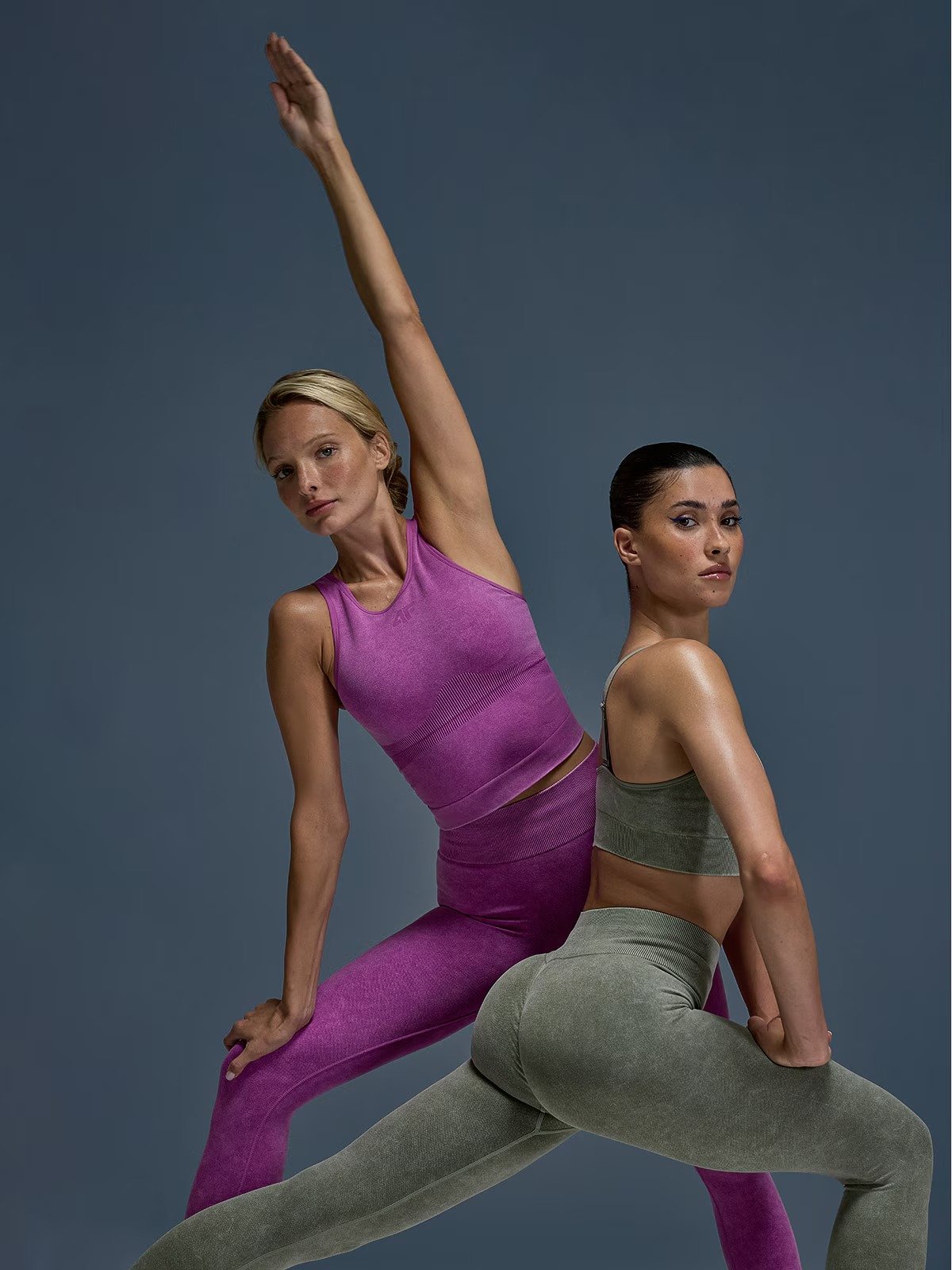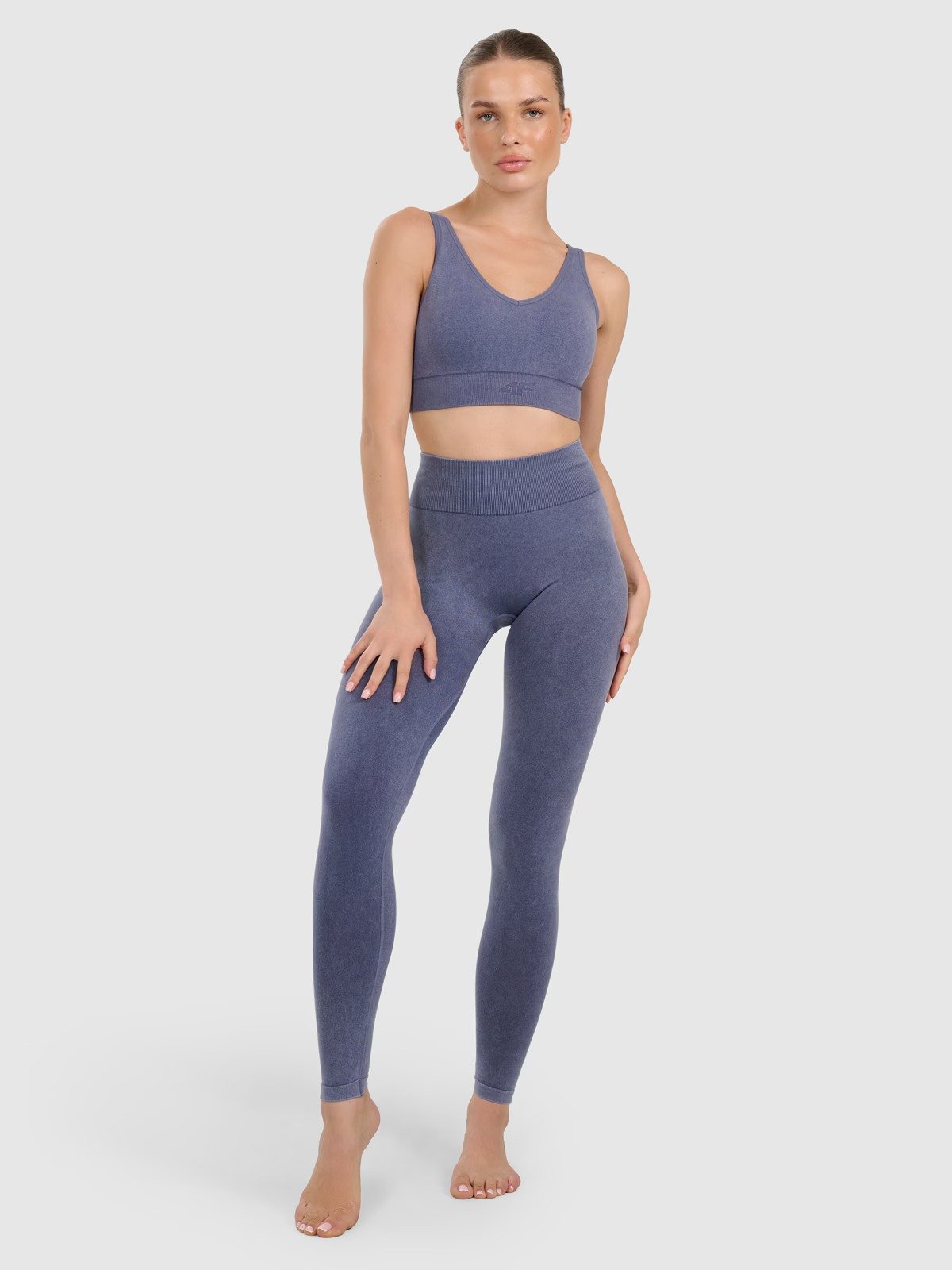When I first started researching activewear trends, one brand kept showing up on my feed: TALA. It wasn’t just about yoga leggings or crop tops—it was about how Gen Z connected with the brand’s sustainability, affordability, and authenticity.
So, why is TALA yoga wear so popular among Gen Z? From my own sourcing and brand-building experience, I’ve learned that it’s a mix of eco-conscious values, trend-driven design, and clever community marketing.
Table of Contents
- What Makes TALA Stand Out in the Activewear Market
- Why Gen Z Connects with TALA’s Yoga Wear
- FuKi Yoga: A Private Label Path for Gen Z Brands
- Comparison: TALA vs Private Label Yoga Wear
- FAQs
What Makes TALA Stand Out in the Activewear Market
Sustainability First
TALA built its name on recycled and upcycled fabrics, answering Gen Z’s demand for eco-conscious fashion.
Affordable Premium Feel
Unlike luxury brands, TALA offers accessible price points without compromising style.
Authentic Branding
TALA’s transparent storytelling resonates with consumers who value honesty over polished ads.
👉 This combination makes TALA a benchmark for modern yoga wear brands.
Why Gen Z Connects with TALA’s Yoga Wear
From my observations, Gen Z’s buying habits are influenced by three main factors:
Social Media Influence
TALA grew by leveraging Instagram and TikTok, showing real customers instead of just models.
Community & Inclusivity
Size inclusivity and authentic representation give TALA a strong “for everyone” identity.
Trend Responsiveness
Whether it’s seamless leggings, ribbed bras, or loungewear sets, TALA adapts quickly to micro-trends.

FuKi Yoga: A Private Label Path for Gen Z Brands
While TALA leads in sustainability and Gen Z appeal, I’ve seen many new labels succeed by creating private label yoga wear.
FuKi Yoga helps brands design collections that combine TALA-like features with custom branding.
Why Choose FuKi Yoga
- ✅ Low MOQs starting from 100 pcs.
- ✅ Eco fabrics like bamboo, organic cotton, and recycled nylon.
- ✅ OEM/ODM customization for logos, trims, and packaging.
- ✅ On-trend designs: seamless leggings, ribbed yoga tops, loungewear sets.
- ✅ Scalability for both startups and growing fitness brands.
👉 For more insights, explore the FuKi Yoga Blog.

Comparison: TALA vs Private Label Yoga Wear
| Feature | TALA | FuKi Yoga (Private Label) |
|---|---|---|
| Fabric | Recycled & upcycled materials | Eco fabrics: bamboo, recycled nylon, organic |
| Pricing | Affordable, mid-range | Wholesale pricing, customizable margins |
| Customization | Not available | Full OEM/ODM + private label branding |
| Community Appeal | Strong social media presence | Customizable branding & audience focus |
| MOQ Requirements | N/A (direct retail) | Low MOQ (100 pcs) |
FAQs
Q1: Why is TALA so popular with Gen Z?
Because of its sustainability, authenticity, and social media-driven growth.
Q2: Does TALA use recycled fabrics?
Yes. That’s a core part of its brand identity and why it resonates with eco-conscious shoppers.
Q3: Can private label yoga wear compete with TALA?
Yes. With the right supplier, brands can create eco-friendly, trend-driven collections that rival TALA’s appeal.
Q4: What’s the MOQ for starting a private label line?
With FuKi Yoga, you can start at just 100 pcs per style.
Final Thoughts
So, why is TALA yoga wear so popular among Gen Z?
It’s not just the eco fabrics or trendy designs—it’s the brand’s authentic voice, inclusivity, and community focus.
But here’s the opportunity: brands can create their own TALA-inspired collections with FuKi Yoga. By offering low MOQs, eco fabrics, and customization, FuKi Yoga empowers startups to tap into Gen Z’s values and grow their own community-driven labels.
👉 Ready to design your own Gen Z–friendly yoga line? Explore FuKi Yoga’s services.


